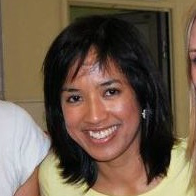 Two years have passed since I last saw Joanna, having decided to make our separate ways in Southeast Asia, after having traveled extensively together, camping, hiking, hitch-hiking.
Two years have passed since I last saw Joanna, having decided to make our separate ways in Southeast Asia, after having traveled extensively together, camping, hiking, hitch-hiking.
Last week, I met with Joanna again in Cartagena, a city on the Atlantic coast of Colombia.
(As it turned out, since we last saw each other, she had found work in London, lived in an abandoned mansion there for some time, and had recently made her way towards Mexico in order to visit me. After being refused entry to board a flight from Mexico, she managed to hitch-hike her way down south towards Panamá, and then worked on a boat in exchange for passage towards Cartagena.)
Throughout the three days we spent together, she told me of a few stories. One, that she had recently fallen in love with a Mexican boy. The shyest romance she has ever encountered, she confided to me. (Has she ever encountered a Malaysian romance, I wanted to ask.)
And then her words: “If you are up for it,” she said, “We can go back to Panama. We can either take the land route, or hitch-hike some sailboats towards the small coast of Guatemala, and make our way to Palenque. That's where he lives.”
(Why not. peace also means love, after all.)
Throughout the few days that we managed to see each other, good things began to happen, just as good things always seem to happen whenever I am with Joanna.
Hearing our stories and our desires to travel together, a now world-infamous Polish hitch-hiker and sailor, Mikolaj, offered Joanna and I a chance to take over his 28-feet sailboat, the “Youyou”, one that had travelled multiple times around the world.
“You can learn how to sail. It can be done. This can be a project.” he said.
(Why not. The future is open.)
Meanwhile, Joanna and Mikolaj told me the story of the Kunas she met in the islands of San Blas in Panama.
The Kunas, they explained, is an indigenous group in Panama that exercise self-sovereignty and autonomy over all the islands in San Blas.
Originally from central and western Colombia, the Kunas decided to settle along the Caribbean coast of Panamá more than two hundred years ago. Now, their settlements are surrounded by pristine sea of the Caribbean, and isolated in one of the wildest remote corner of the Earth.
I hear of the Kunas, and their sailboats. The Kunas' sailboats, are not those of the many traveling sailboats making its passages around Panama, Colombia and the Caribbean.
The sailboats of the Kuna, called the Ulu or Cayuco, are simply dug-out hollowed tree barks, made into canoes, sailed with a traditional jib foresail of a colourful patchwork, made mostly with scraps, old sails or garments.
I also hear of the Kunas' economy. The Kunas' currency works with coconuts.
“Don't help yourself to all the coconuts on the islands,” Joanna said. “An indigenous man will come running to you claiming US$1 (RM4.28) for every coconut you take.”
“Shouldn't coconuts be free?” I thought.
Coconuts are indeed traditionally the currencies of the Kunas. These charges of US$1 per coconut represent how the Kunas of today face the currency system of the world head on, and still are able to maintain their independence, and maintain autonomy over their declared territories.
In many ways, the Kunas' culture and economic independence is impressive, having able to escape assimilation (and risk of extermination), first from the arrivals of the Spanish in the 15th century and today, from the government of Panama.
The Kunas have been able to protect their land, from all kinds of encroachment. They have managed to preserve the land through exercising one of the highest degrees of self-rule over their territory.
But the outlook, as I have learnt to accept, will never be idyllic. Just like the rest of us, the Kunas are facing the problems of capitalism and globalisation. How do the Kunas fare in these, I wonder. What are the perspectives of the newer generations?
Joanna, in rejecting the idea that money can dictate level of opportunities and connections one can maintain with others, proved her point by traveling across continents just to be able to maintain her friendship with me.
The Kunas, in maintaining their sovereignty, discovered a means to play the system by measuring the global currency to its coconuts.
Is there one solution to fight against the systemic corruption of money? While I find the answers to these?
My journey keeps on, and meanwhile, it was time to head back towards the Peace Community. – December 8, 2015.
* This is the personal opinion of the writer or publication and does not necessarily represent the views of The Malaysian Insider.


Comments
Please refrain from nicknames or comments of a racist, sexist, personal, vulgar or derogatory nature, or you may risk being blocked from commenting in our website. We encourage commenters to use their real names as their username. As comments are moderated, they may not appear immediately or even on the same day you posted them. We also reserve the right to delete off-topic comments